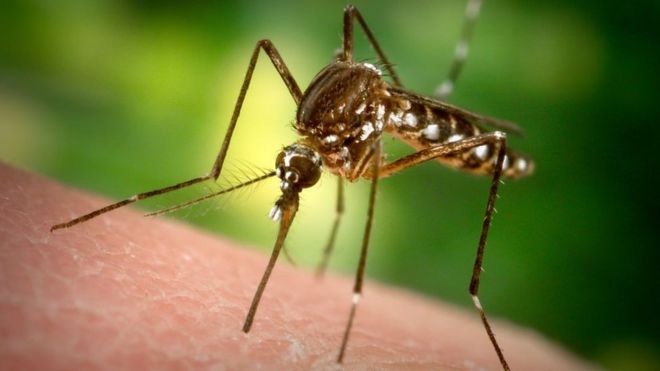The 1 Thing You Should Never, Ever Do If You Get A Mosquito Bite
Every summer, I get eaten alive by mosquitoes. My arms and legs get covered in bites that I scratch until they become bloody bruises that scab over and take weeks to heal. I know I’m treating my mosquito bites all wrong because, well, I have the scars to show it. Most mosquito bites go away within a week or so ― unless you don’t take proper care of them.
According to the Centers for Disease Control and Prevention, when you get bit by a mosquito, the bug injects saliva into your body via its proboscis, the little needle-like body part that sucks up your blood. That saliva contains an anticoagulant that keeps your blood flowing so the bug can get a hearty meal to lay its eggs. The toxins in that saliva are thought to be what makes their bites feel warm and itchy.
Dr. Bobbi Pritt, the director of the Clinical Parasitology Laboratory at Mayo Clinic and a spokesperson for the College of American Pathologists, said this is because your body mounts an immune response to the saliva and releases a wave of histamines and leukotrienes. This reaction varies from person to person, and bug to bug, which is why some people develop significant swelling and soreness while others just get a mildly itchy bump.
Regardless of how you react to mosquito bites, doctors agree there’s one thing you shouldn’t do when you get a bite: scratch it.
Why You Should Avoid Scratching Your Bug Bites
It can be tempting to scratch mosquito bites given how incredibly itchy they can get, but you really want to avoid doing so, Pritt said.
The main reason: There are many different types of bacteria that live on our skin and our bodies — like Staphylococcus and Streptococcus — that, for the most part, are harmless, according to Pritt. “But if you have an open wound, like if you scratch really hard, you could actually rub the bacteria from your skin into that little wound and get an infection.”
These infections, like cellulitis and impetigo, can cause redness, swelling, a blister, tenderness around the bite along with swollen lymph nodes and yellow discharge. They can be treated with antibiotics, but, in rare cases, an infected bite can lead to serious complications like sepsis or necrotizing fasciitis.
The second reason you don’t want to scratch: The more you itch, the more histamine cells your body will release, making the bite even itchier.
“Scratching can send mild pain signals to the brain, which can release serotonin and increase the sensation of itching,” said Pamela Frable, an associate professor at TCU’s Harris College of Nursing and Health Sciences.
Other Ways To Help Your Mosquito Bite Heal ASAP
Of course, not scratching isn’t the only way to speed up your recovery, and there are a few other steps you want to take to prevent infection and make sure your bite gets better.
The very first thing you want to do after you get bit is wash the bite out with soap and water. This will help remove bacteria near the bite that could cause an infection. A mosquito bite is technically a small wound, said Frable, and “it’s generally a good idea to wash all wounds gently with soap and water.”
Then, you want to apply ice to the bite, ideally for about 10 minutes or so, Pritt explained. Ice can drastically reduce the itching along with inflammation, pain and swelling, according to the Cleveland Clinic.
Next up: Cover the bite with an anti-itch or antihistamine cream, such as calamine lotion or hydrocortisone. These products can drastically reduce itchiness and, most importantly, prevent you from scratching the bite and break the scratch-itch cycle, Pritt said.
If you don’t have these items in your medicine cabinet or aren’t able to get to a pharmacy, you can whip up an anti-itch paste at home. Simply combine a tablespoon of baking soda with a splash of water to create a thick paste. Then, rub the mixture over the bite, wait 10 minutes, and wash it off. This DIY concoction reduces itch, according to the Mayo Clinic, but, better yet, it prevents you from scratching the bite and making things even worse.
Finally, you want to keep an eye on the bite and pay attention to any symptoms you develop over the next week or two. It’s fairly common to develop a fever or even swollen lymph nodes immediately after the bite, so don’t panic if you experience these symptoms right away, Pritt said.
Not all mosquitoes carry disease, but some spread Zika, dengue and West Nile virus, all of which can cause severe illnesses and health complications. You can’t tell if a mosquito carried a pathogen by simply looking at the bite, according to Frable, which is why it’s crucial to pay attention to any symptoms.
So, if you get a fever, a rash, severe headache, or confusion a week or two after the bite, check in with a physician. They can run diagnostics tests to determine if you contracted a mosquito-borne disease and administer supportive care to help you recover.



